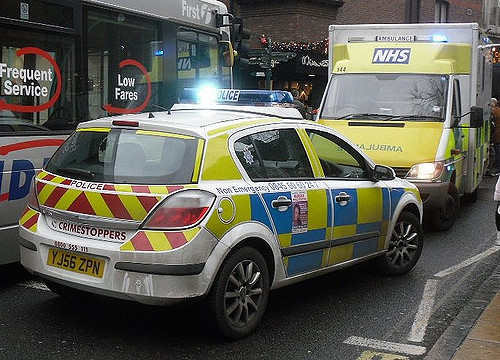 Road users want the law to be far stricter on those who cause death and serious injury when driving, according to a new poll. The survey of nearly 2000 road users, conducted by road safety charity IAM RoadSmart, found nearly 80 per cent agreed there should be a new offence of causing serious injury by careless driving.
Road users want the law to be far stricter on those who cause death and serious injury when driving, according to a new poll. The survey of nearly 2000 road users, conducted by road safety charity IAM RoadSmart, found nearly 80 per cent agreed there should be a new offence of causing serious injury by careless driving.
Some 56 per cent of those who agreed said the maximum penalty should be between one and five years in prison; 44 per cent went further and felt the maximum penalty should be more than five years.
Many respondents also felt the current maximum penalty of 14 years in jail for causing death by dangerous driving wasn’t nearly high enough – with almost 50 per cent saying the penalty was not set at the right level.
However, when asked if the maximum penalty for causing death by dangerous driving should be increased to life imprisonment, those taking our survey were more evenly divided, with slightly over 51 per cent ‘agreeing’ or ‘agreeing strongly’, but 49 per cent unsure or against the government’s proposed new tougher sentencing proposals.
Under plans put forward by ministers in December, dangerous drivers who kill could face life sentences. It added dangerous drivers causing death by speeding, street racing or while on a mobile phone are among those now facing the same sentences as those charged with manslaughter.
Offenders who cause death by careless driving while under the influence of drink or drugs could also be handed life sentences – an increase on the current 14 year upper limit. A government consultation seeking views on this ran until February 1.
A majority of those surveyed by IAM RoadSmart also did not want to see the fundamental principles of early release for good behaviour or shorter sentences for pleading guilty waived in cases involving death or serious injury on the road.
The results were much clearer on longer periods of disqualification where injury or death are involved, with nearly 80 per cent of respondents ‘agreeing’ or ‘agreeing strongly’ with this.
The government’s consultation on new penalties closed at the beginning of February – and the issue was brought into even sharper focus with the jailing of Tomasz Kroker for 10 years last October.
Kroker killed a mother and three children when he was distracted by changing music on his smartphone and ploughed into a line of stationary traffic in his truck.
“Our survey shows that on the very emotive issue of those who cause death by driving offences, there is public support for tougher sentencing and that many feel the law simply doesn’t go far enough,” said Sarah Sillars, IAM RoadSmart chief executive officer.
“Holding a driving licence should be considered a privilege, not a right – and those that fail dangerously to reach the highest standards should have that right taken away.
“It is very clear that in the minds of many of the UK public, the punishment often does not fit the crime – and British people think the law should reflect that in a far more fitting and appropriate way,” she added.
“We want to see the current guidelines applied consistently by the courts first. In practice, the current maximum of 14 years in prison for causing death by dangerous driving is rarely used, which is deeply upsetting for the families of victims. There is no guarantee a higher maximum would be used either.
“Until this happens, we cannot be sure tougher sentencing would make a marked difference in the way people act behind the wheel,” Sillars concluded.






